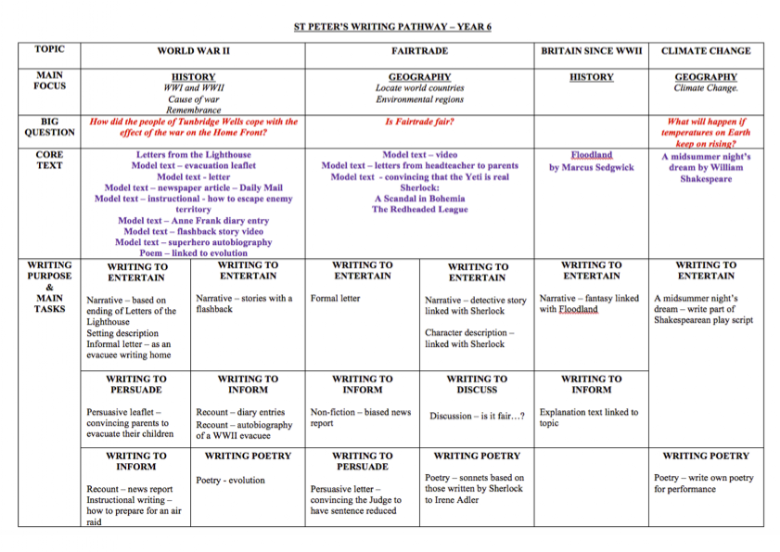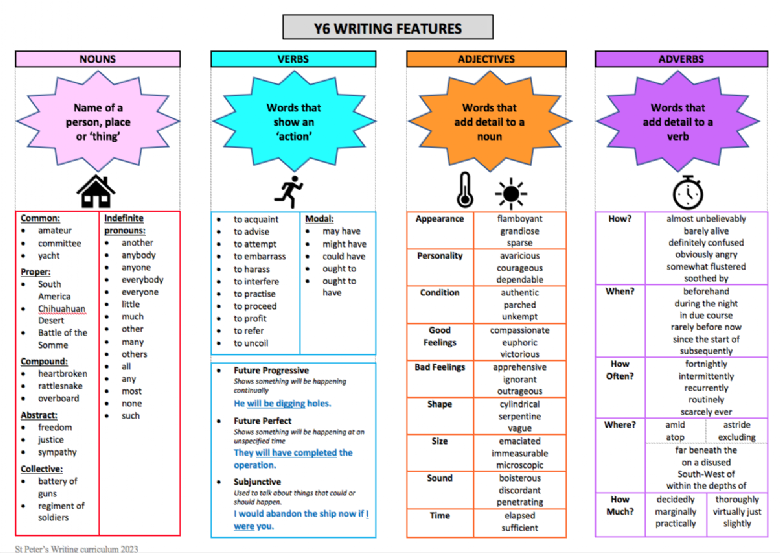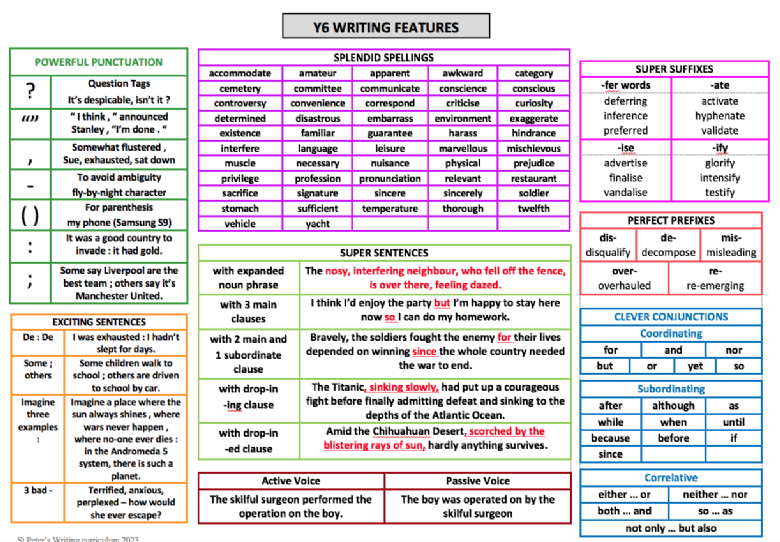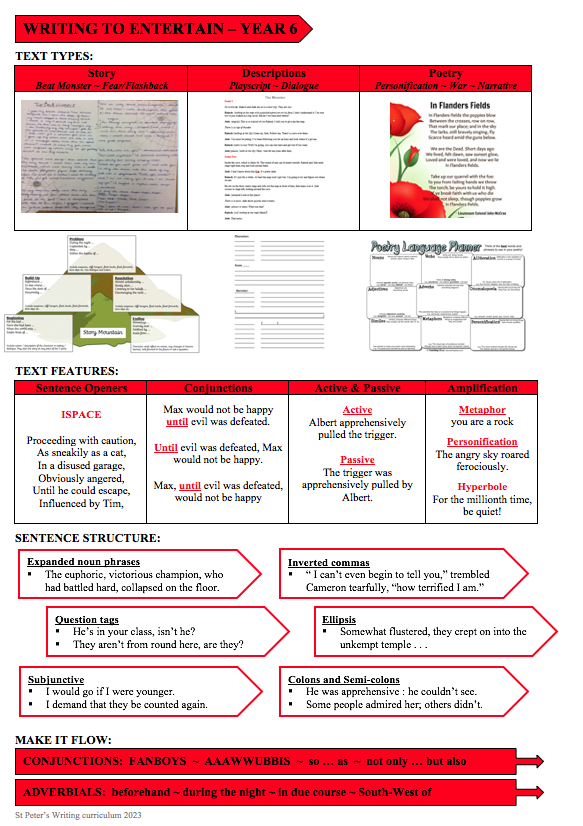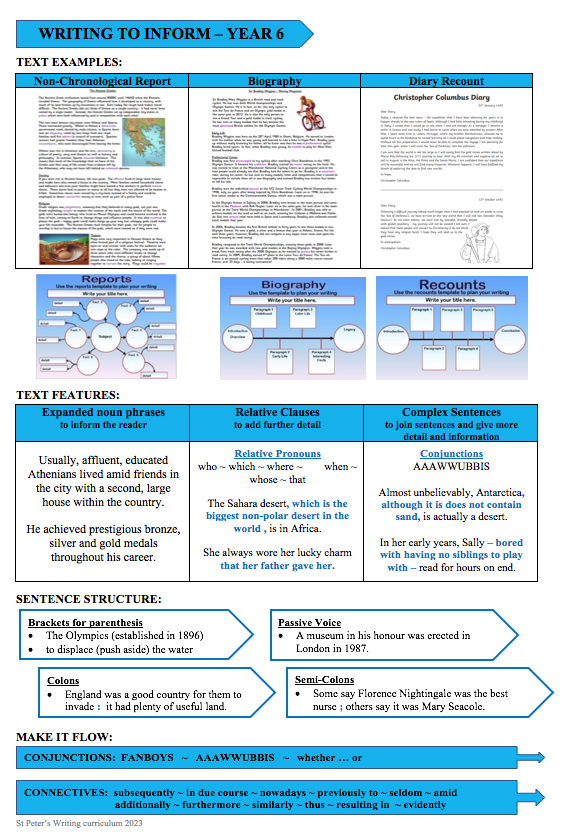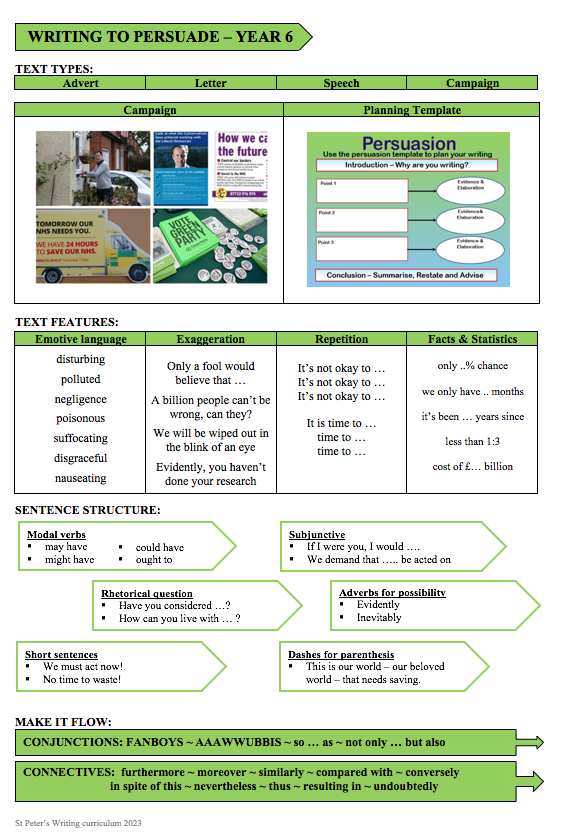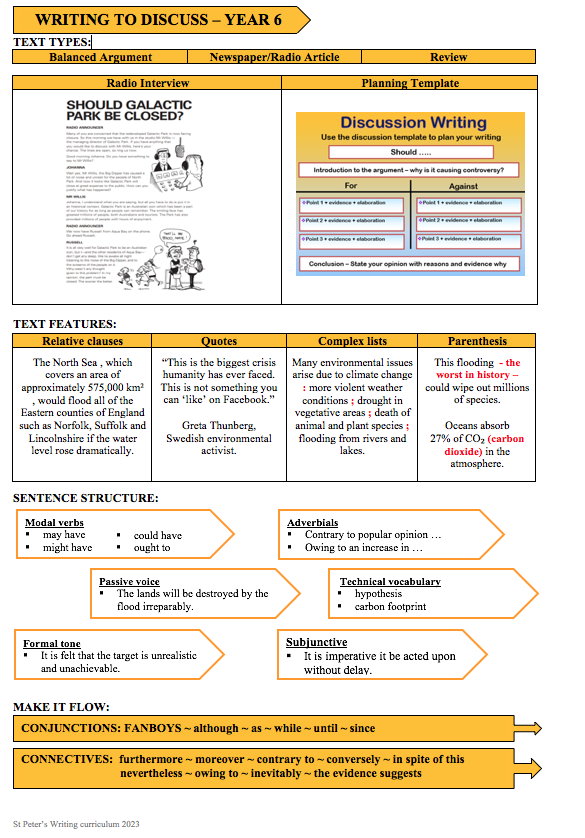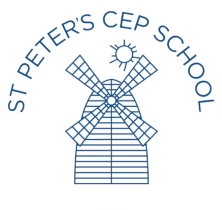Writing
INTENT
We want all children to develop a love of language for language’ sake. We aim to develop our children’s ability to use spoken and written language to communicate effectively – to listen, speak, read and write both in and for a wide range of contexts, purpose and audiences.
We want our children to acquire a wide vocabulary, a good understanding of grammar in context and to be able to spell new words by applying the spelling patterns and rules they learn throughout their time in our school.
We want our children to write clearly, accurately and coherently, adapting their language and style as necessary. We believe that all children should be encouraged to take pride in the presentation of their writing and aim to develop a legible, joined handwriting style by the time they move to secondary school. We want our children to understand that all good writers refine and edit their writing before producing a final published copy therefore we want our children to develop independence in being able to identify their own areas for improvement in a piece of writing and edit their work during and after the writing process.
We recognise that each child has their own starting point upon entry to every year group and progress is measured in line with these starting points to ensure that every child can celebrate success.
IMPLEMENTATION
We follow the National Curriculum 2014 to deliver lessons rich in reading, writing, phonics, spelling, grammar and punctuation through our whole school English Learning Journey where high-quality texts are used to deliver all aspects of the English Curriculum. Each book on the English Learning Journey has been carefully chosen to match the National Curriculum reading and writing requirements for each year group as well as linking in to our wider curriculum, with history, geography, science and social themes specifically covered. This structure provides the children with a deeper understanding of texts. We think it is important for our children to value the importance of reading to develop and enhance writing and to see a clear purpose and context for writing.
Early writing is taught through early mark making, then when the children begin Little Wandle phonics, they are taught the correct letter formations. This begins with writing CVC words, moving onto short sentences using the sounds they have been taught. EYFS children are encouraged to write independently during continuous provision. They also enjoy writing opportunities through Drawing Club, a provision that allows children the opportunity to immerse themselves in the world of story and share their ideas through drawing and writing.
From Y1-Y6, the English curriculum is taught by studying the high-quality texts from St Peter’s Writing Pathway, from which various writing opportunities are then derived. Each week, the children are taught to develop an understanding of how the text flows through reading comprehension, exploring key themes, events and plot of the texts being studied. From the text, children are taught the grammar elements of the NC, corresponding to the genres being written as part of the writing process. Children are then supported in how to apply the grammatical content taught in identifying features of a high-quality ‘Model Text’ before progressing to plan, write and edit a written piece which matches the purpose and audience. Children receive regular feedback from both teachers and their peers in the writing process.
We aim to provide our pupils with a ‘language rich’ environment and within our classrooms, we explore ambitious vocabulary in all lessons and use our working walls to acquire an understanding of new and unknown words. One focus Tier 2 or 3 word is taught to the children each week. This word is displayed on the English Working Wall and shared on our website. We use the No Nonsense Spelling scheme for children in Y2-6 who no longer need Little Wandle phonics. Through the spelling website Spellingframe, children are given weekly words to learn at school and at home in preparation for a spelling test at the end of the week.
We adopt a cross-curricular approach throughout the school to enable the skills that are learnt through the English curriculum to be applied in all other subject areas.
IMPACT
The quality of reading and writing in English is evaluated by learning walks, drop-ins, ‘pupil voice’ discussions and book looks. This informs the subject leader of the impact of new initiatives as well as future areas for improvement. After monitoring, the subject leader provides feedback to SLT and individuals/whole staff to address areas for development.
The impact of the English curriculum is clearly developing with our revised way of teaching. There is evidence of progress, sustained learning and transferable skills and children are becoming more confident writers. By the time they are in Upper Key Stage 2, most genres of writing are familiar to them and they are able to apply the skills independently.
The children’s writing is celebrated in our weekly Celebration Assemblies where teachers talk about particular children in their classes who have excelled in their writing or made particular progress.
Reception
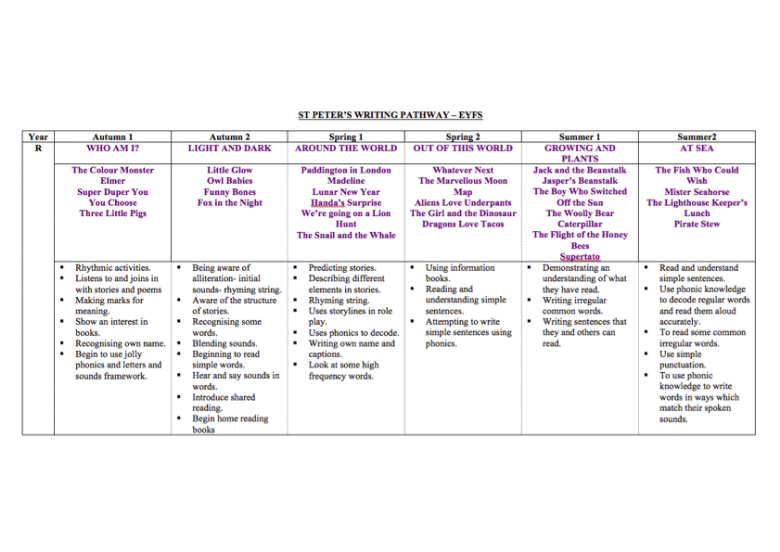
Year 1
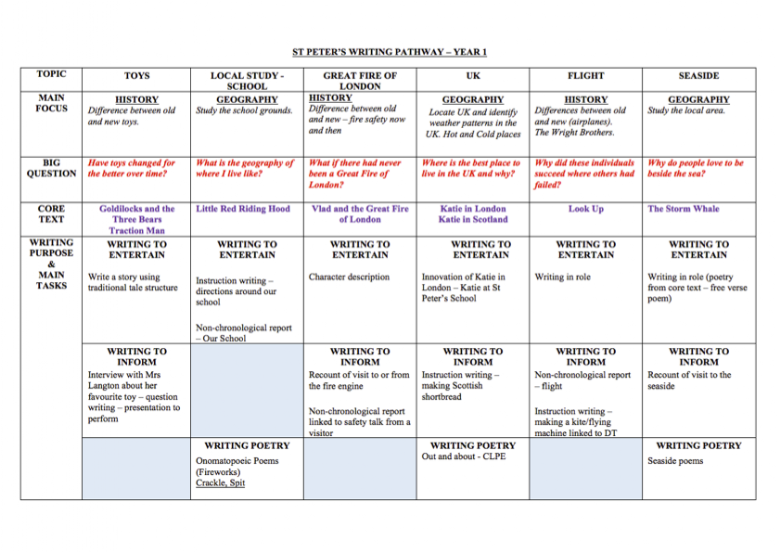
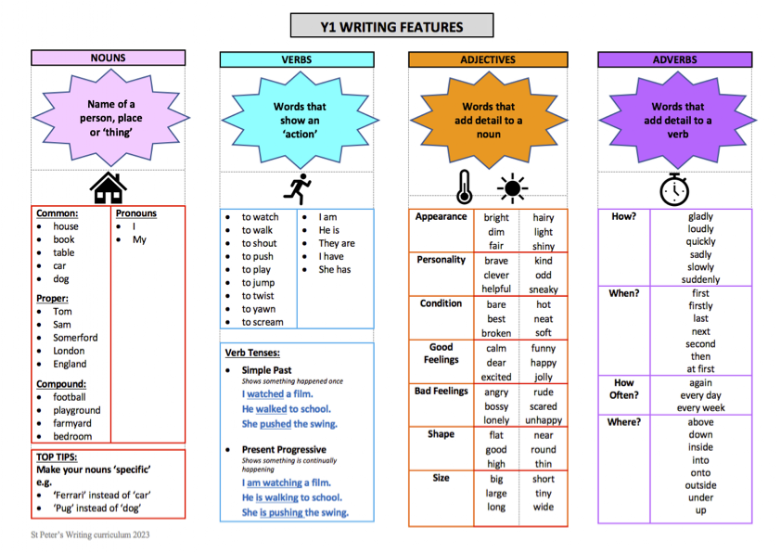
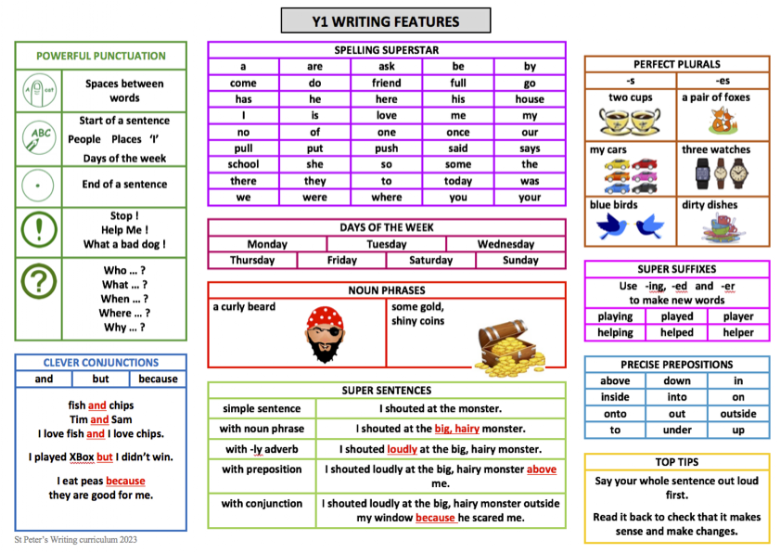

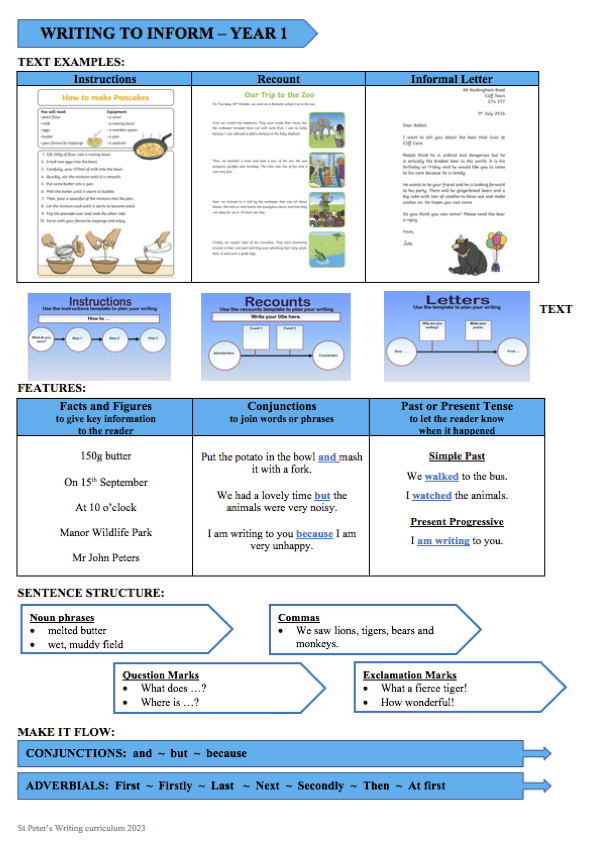
Year 2
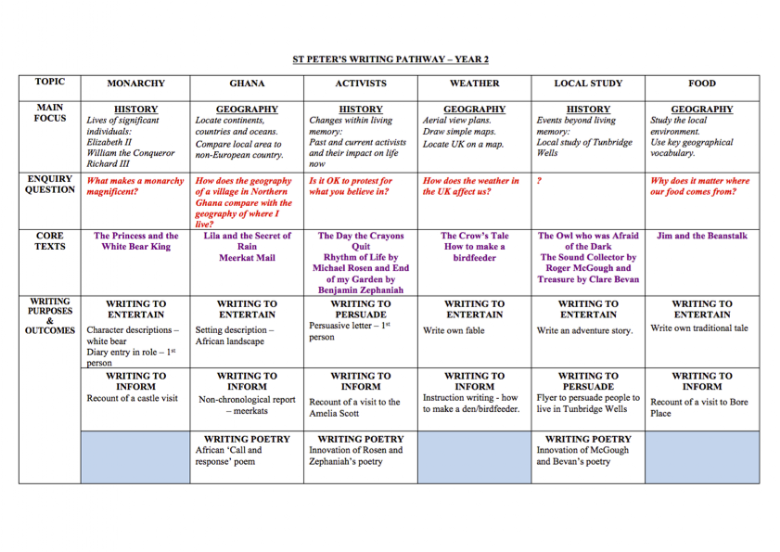
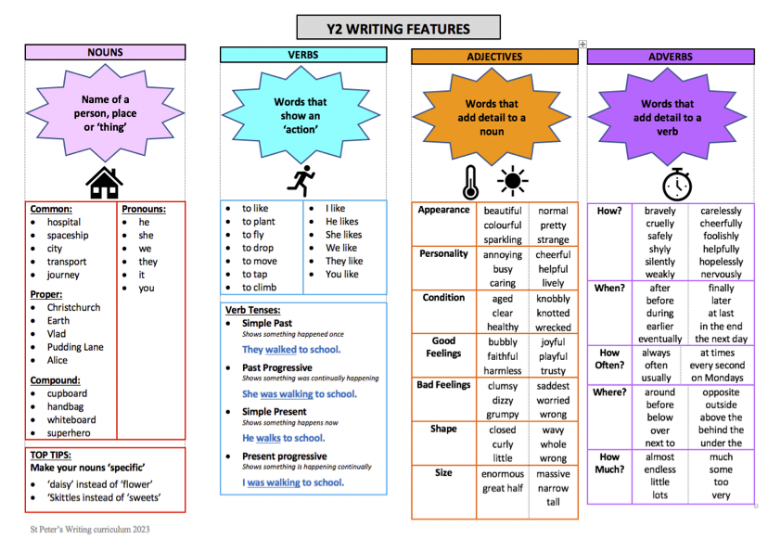

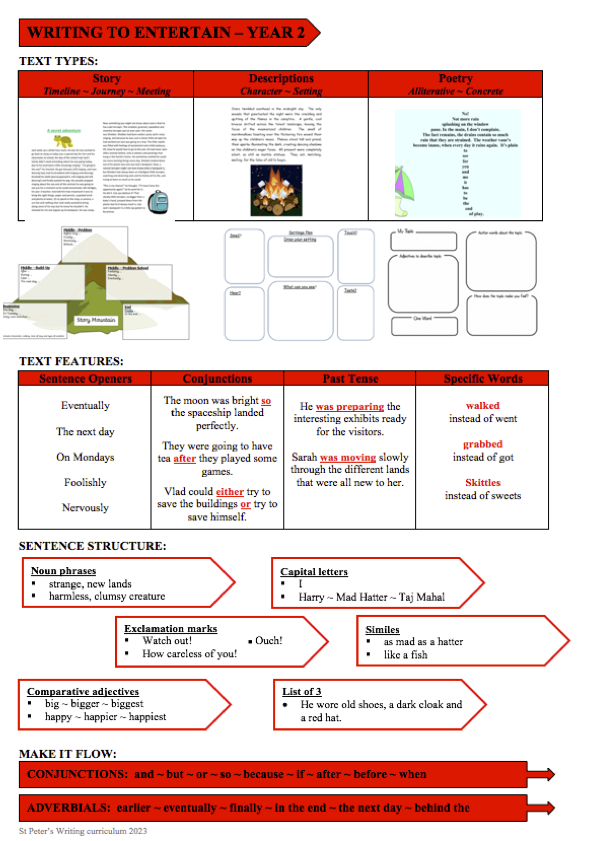
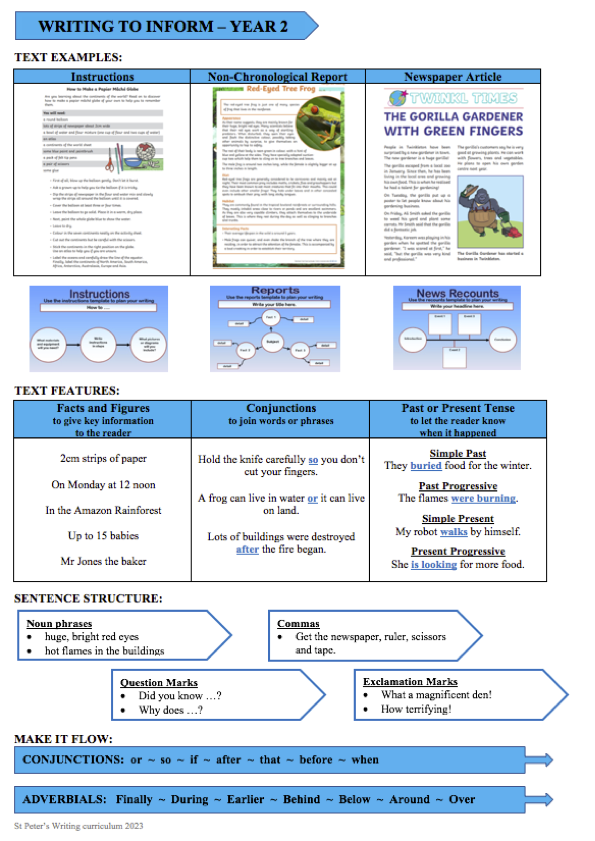
Year 3
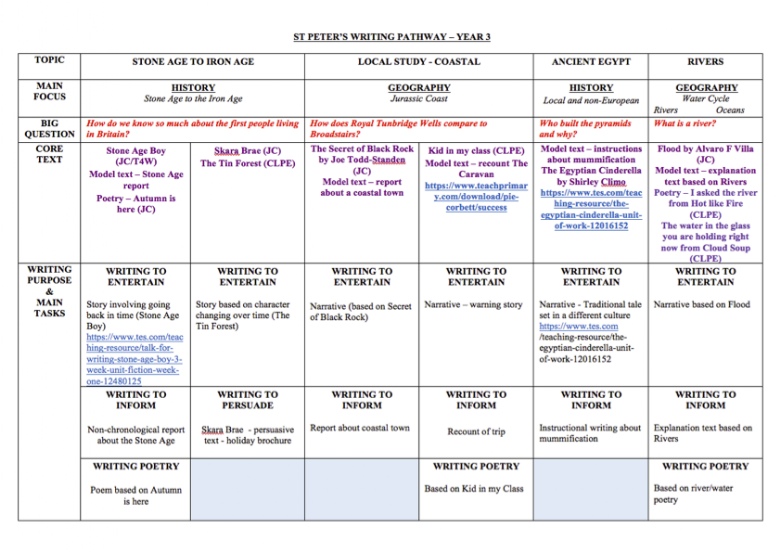
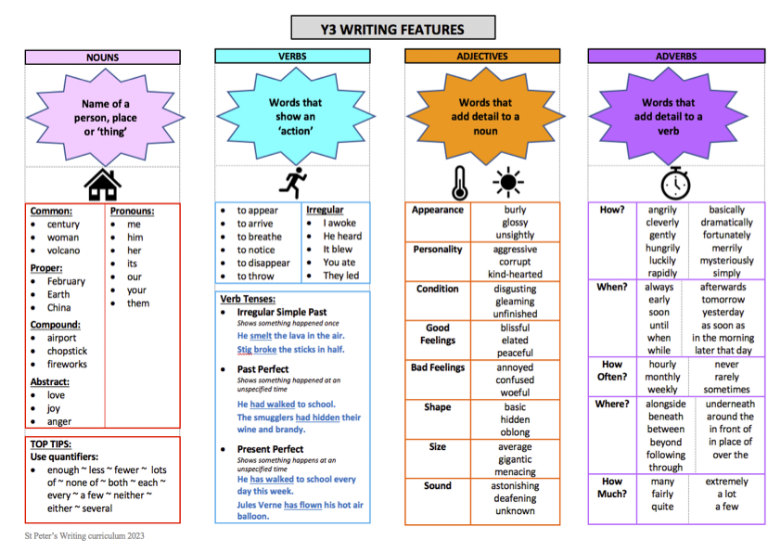
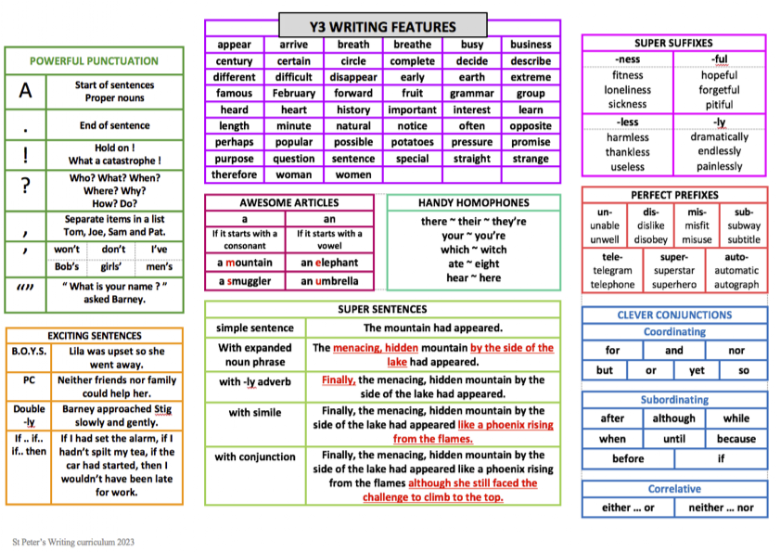
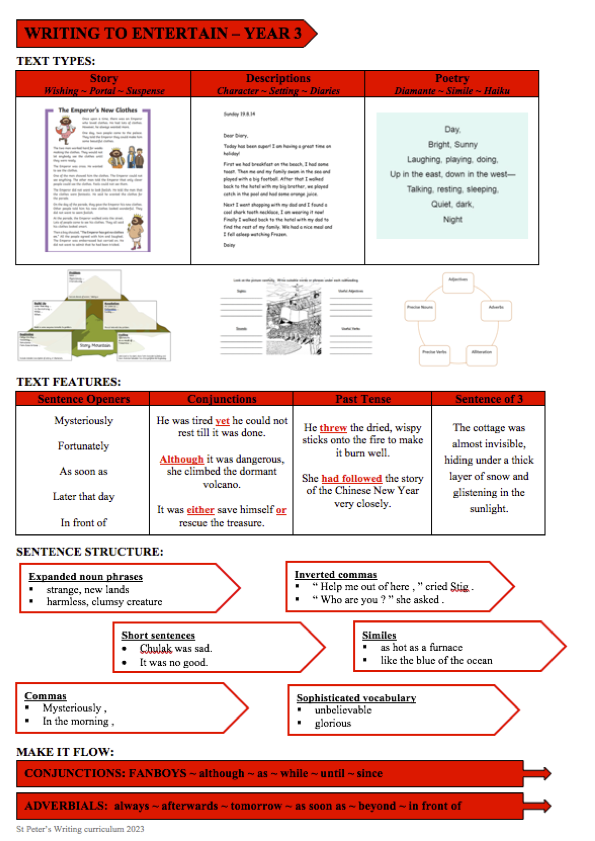
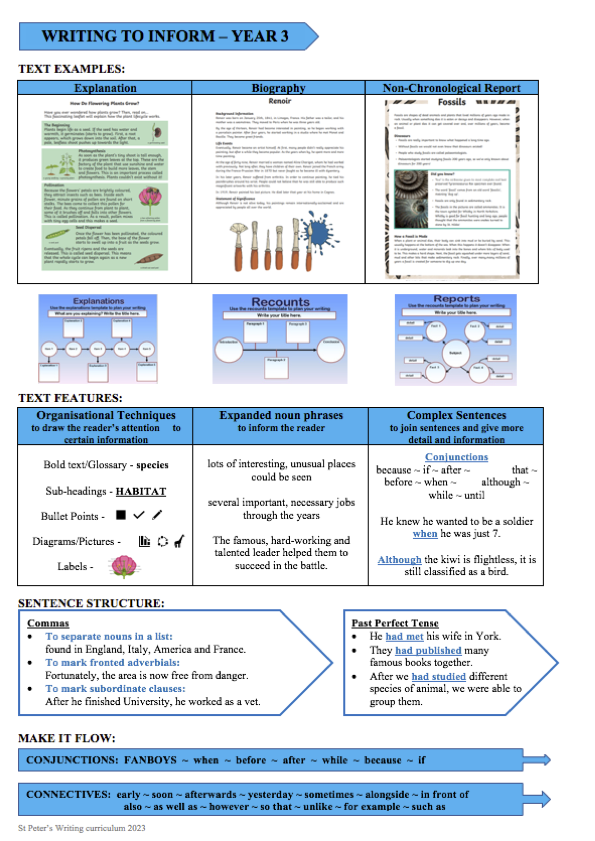
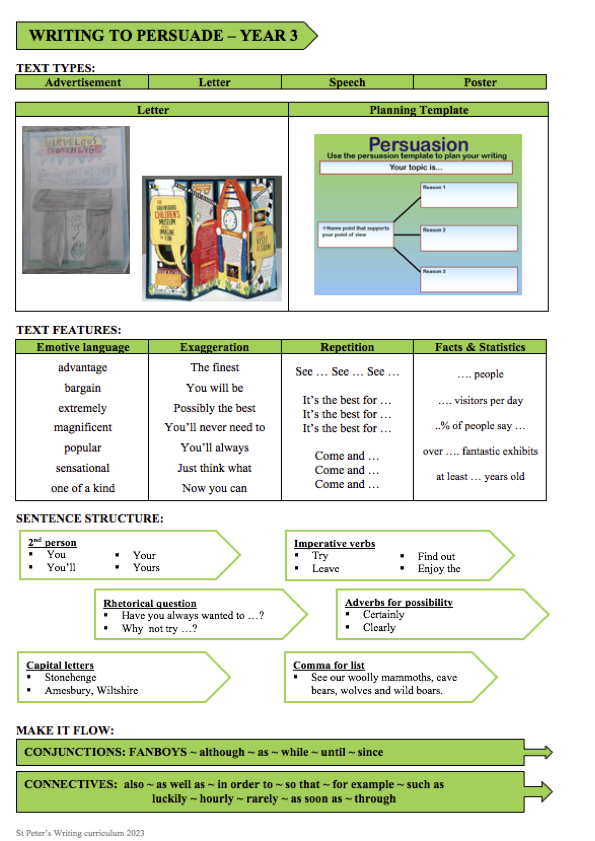
Year 4
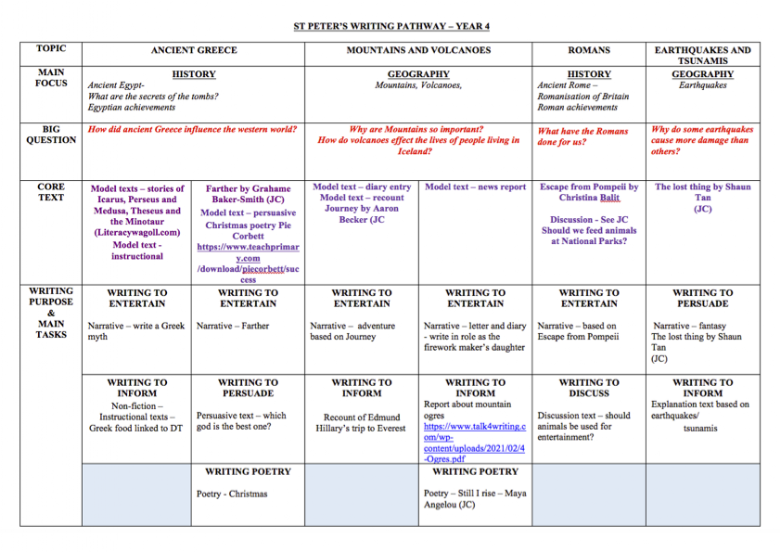
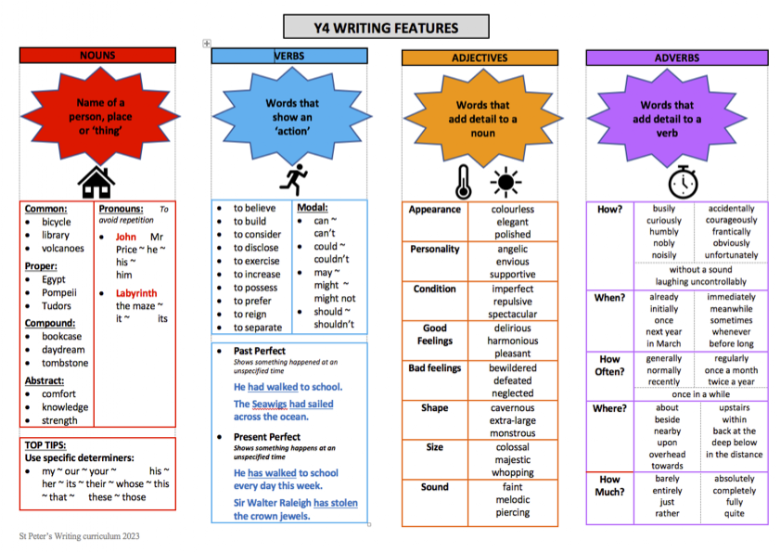
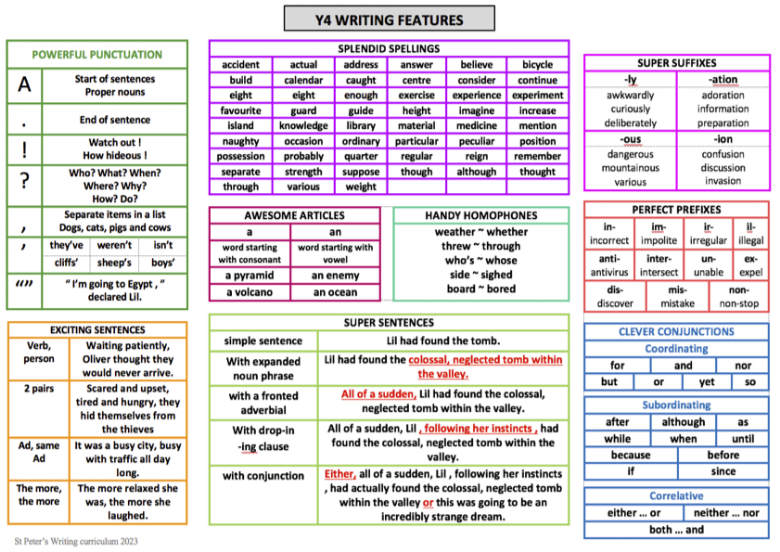
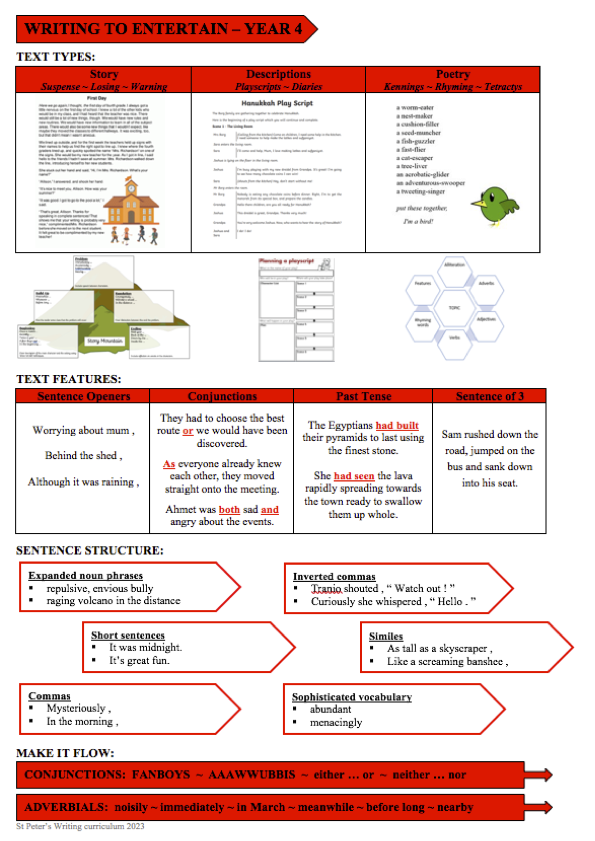

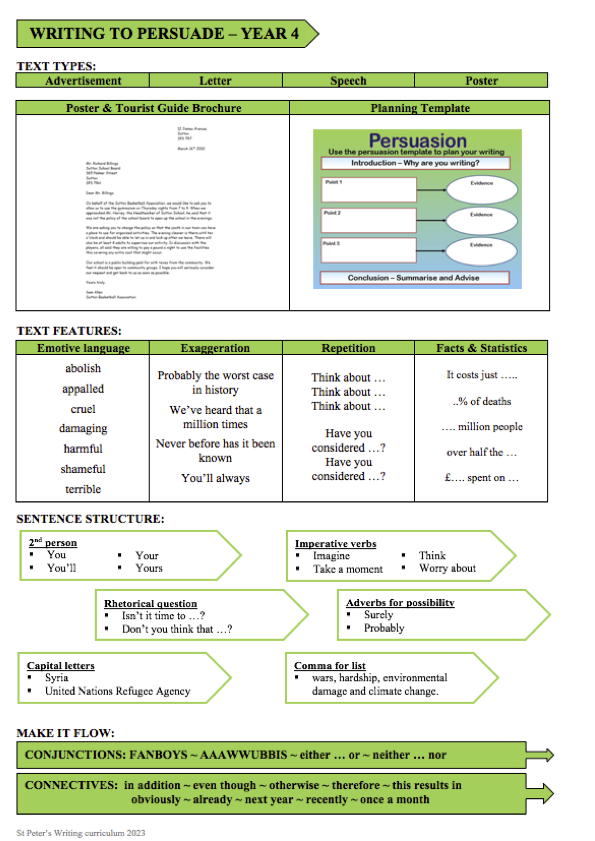
Year 5
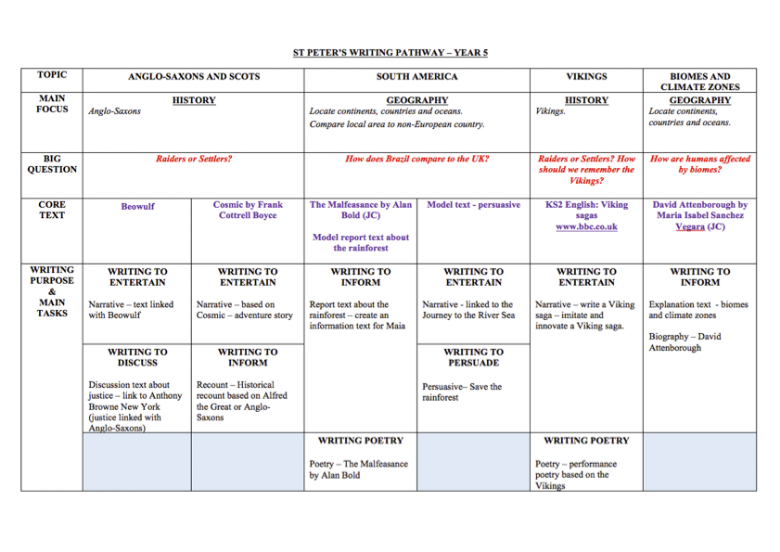
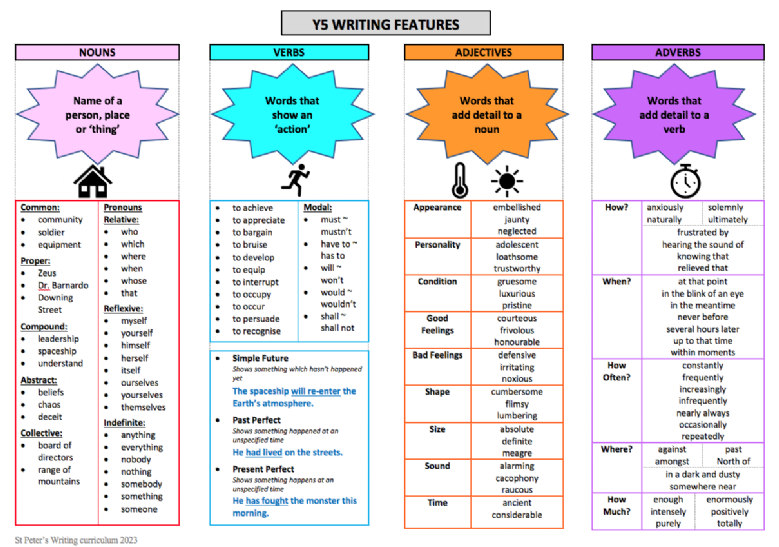

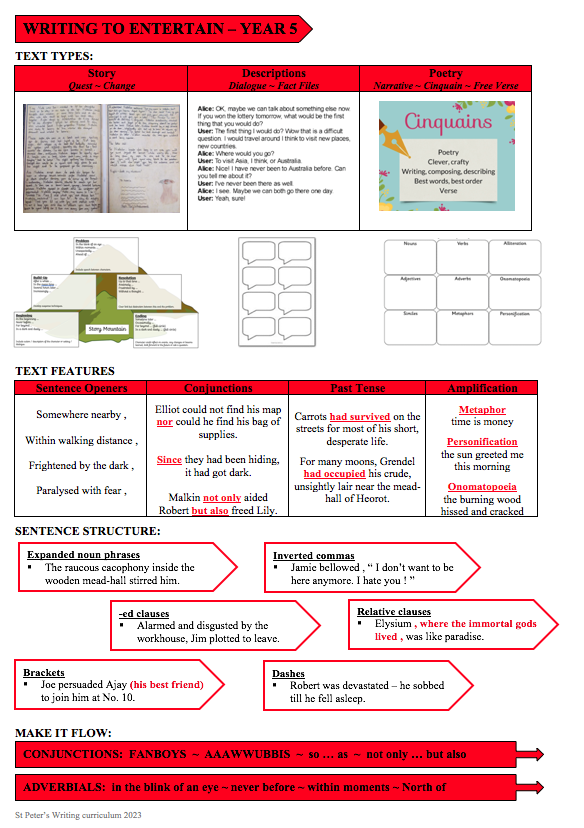
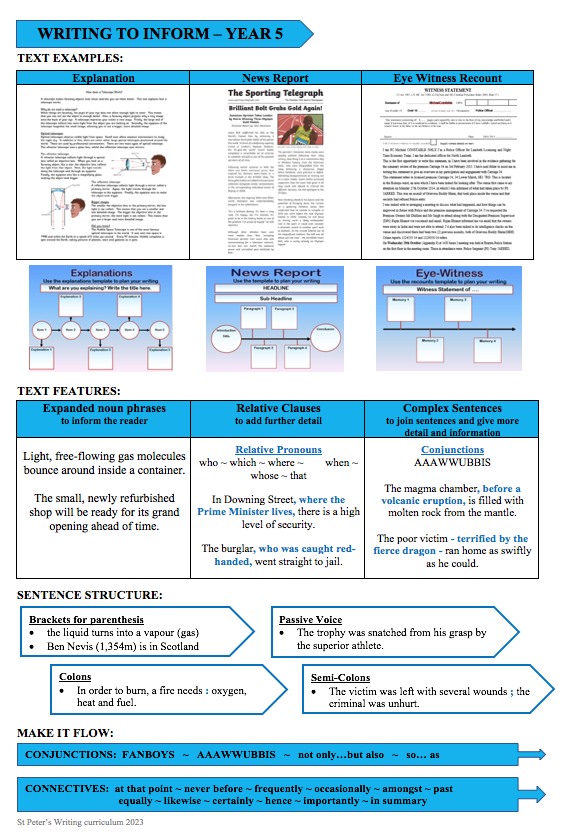
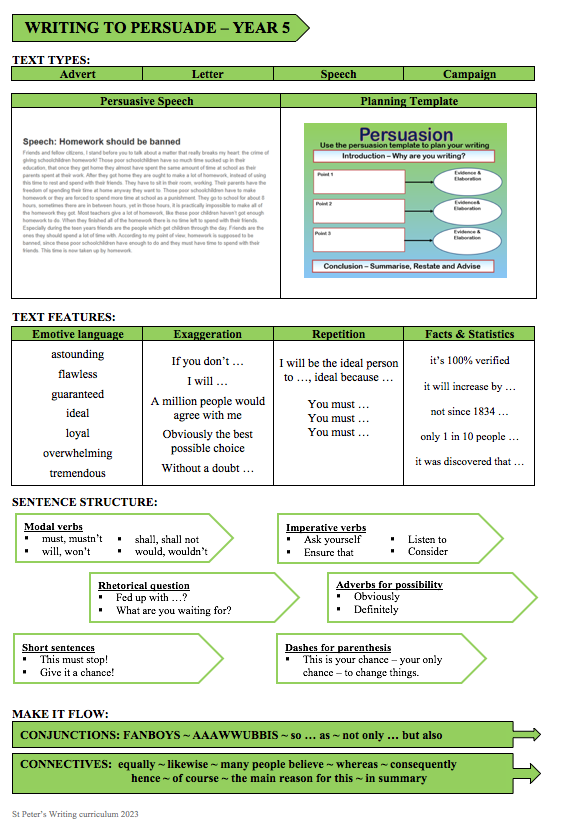
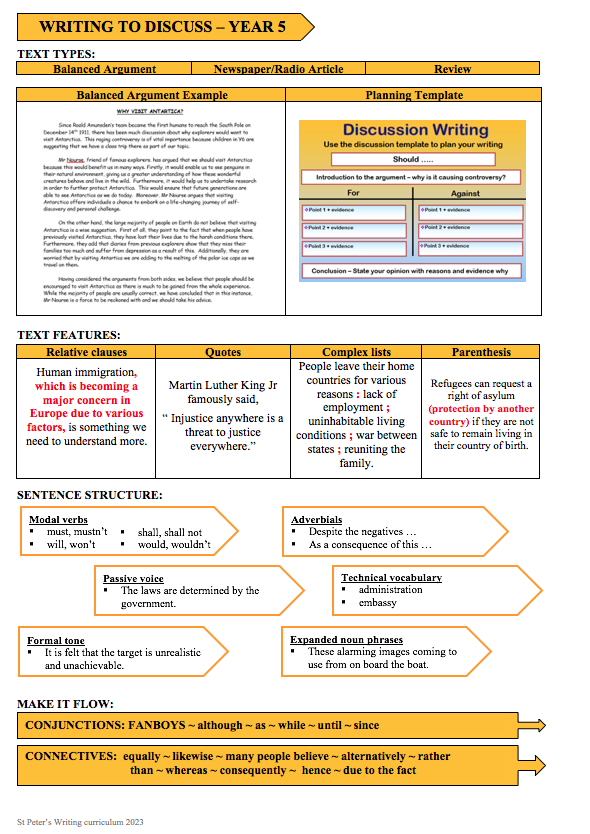
Year 6
